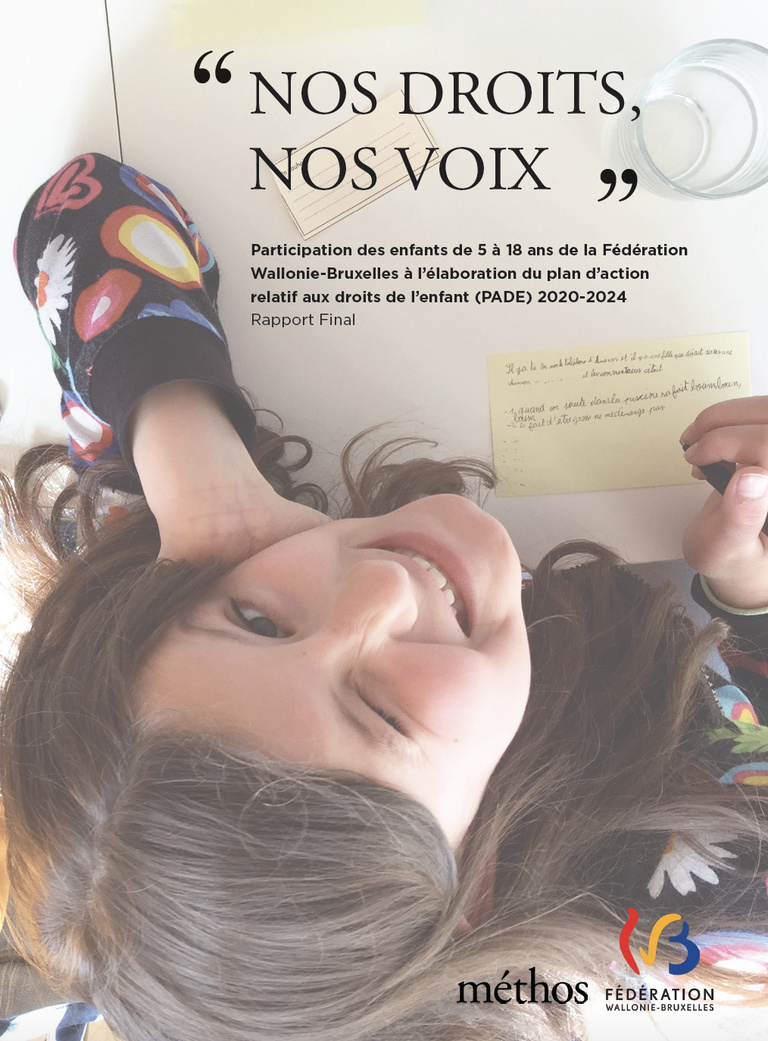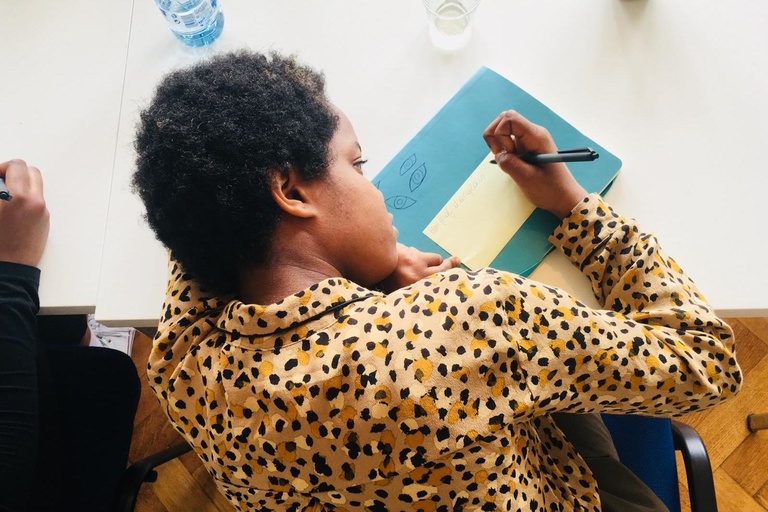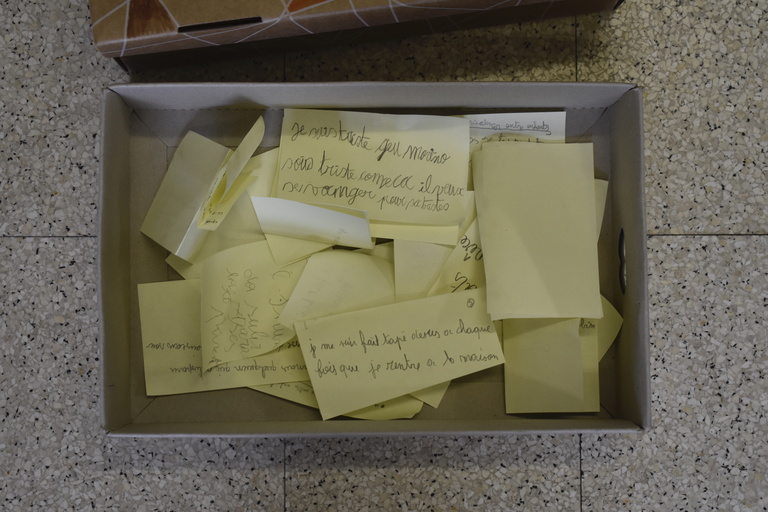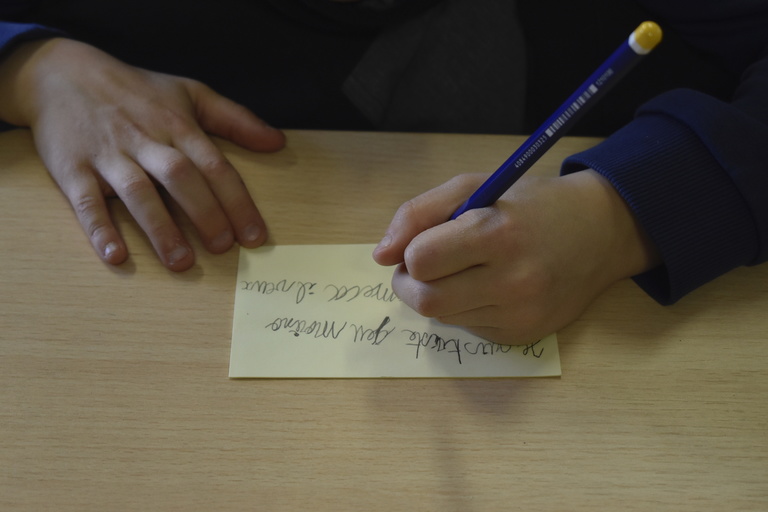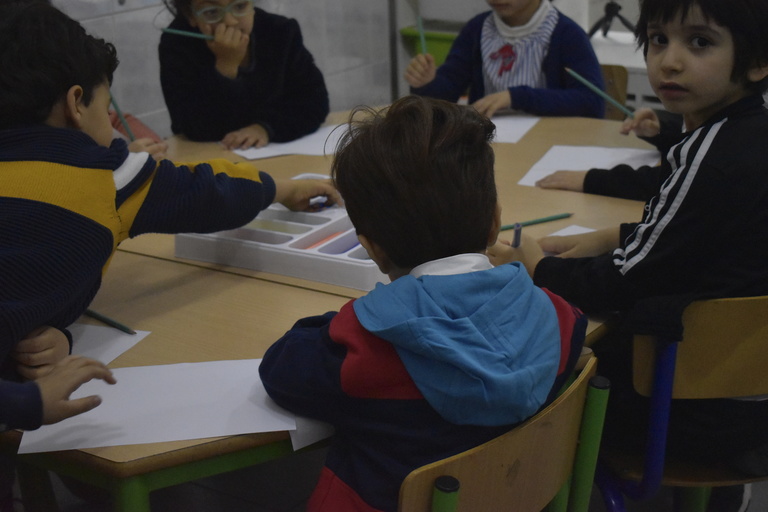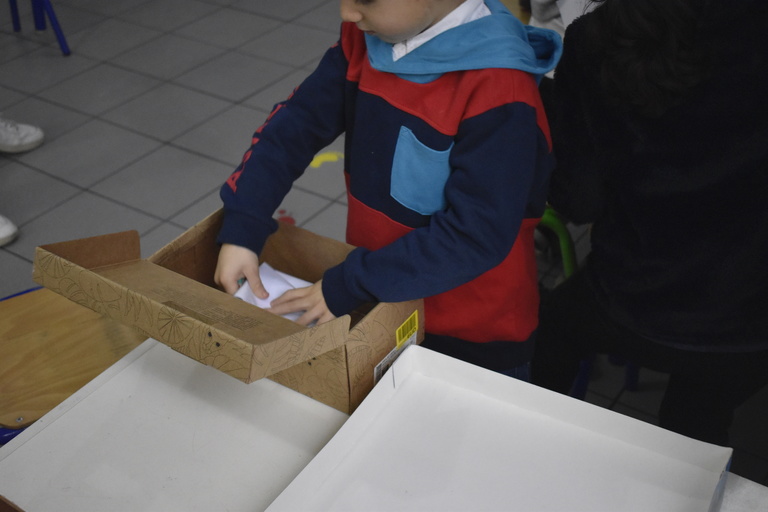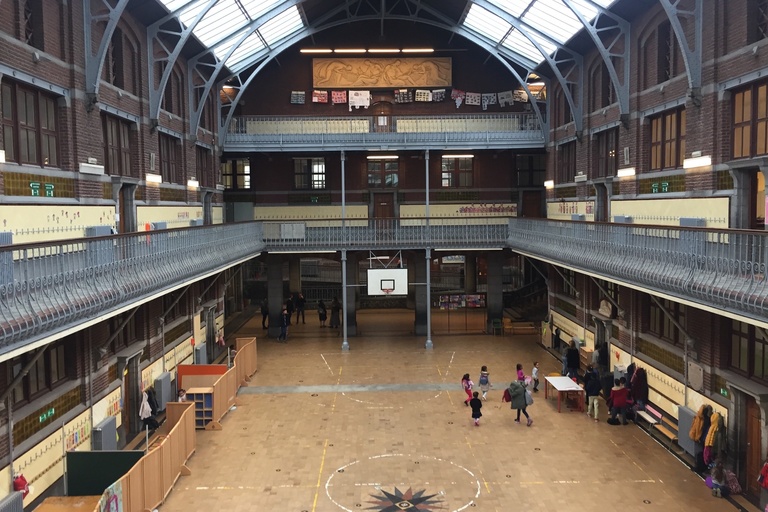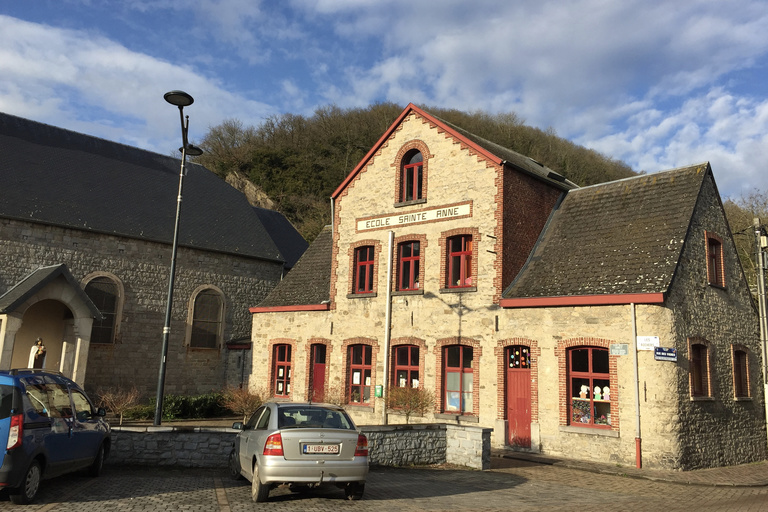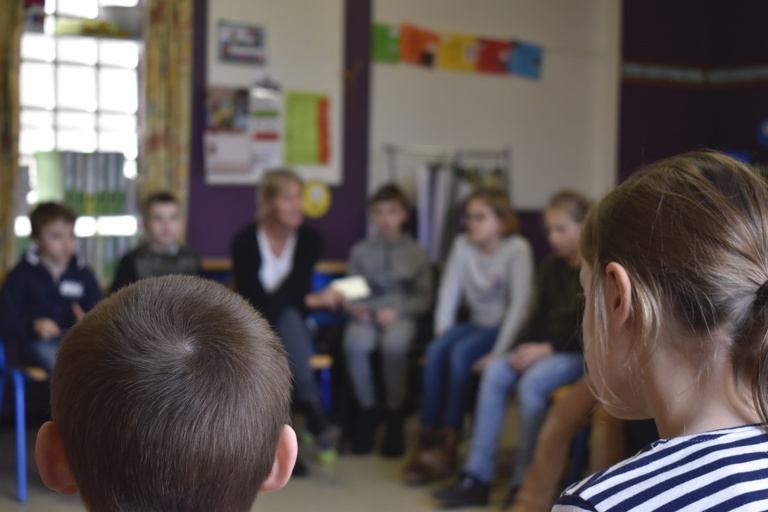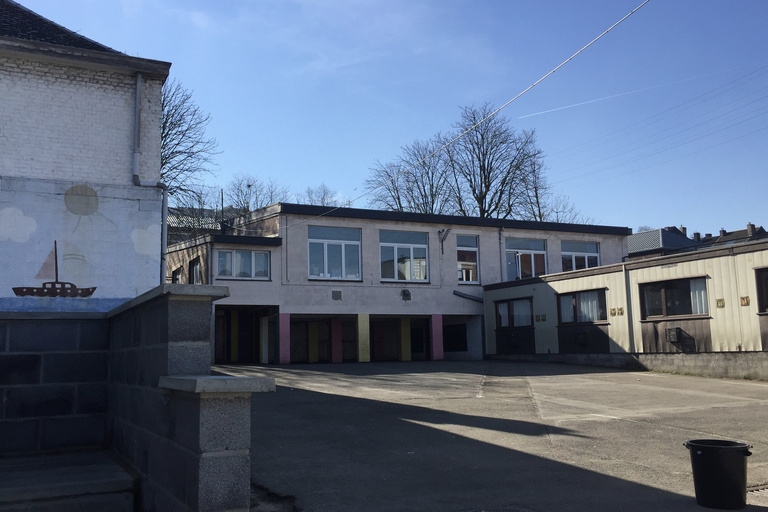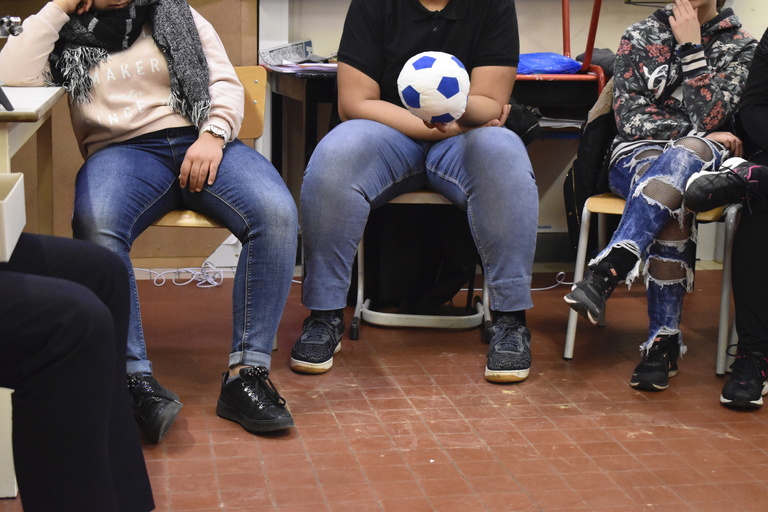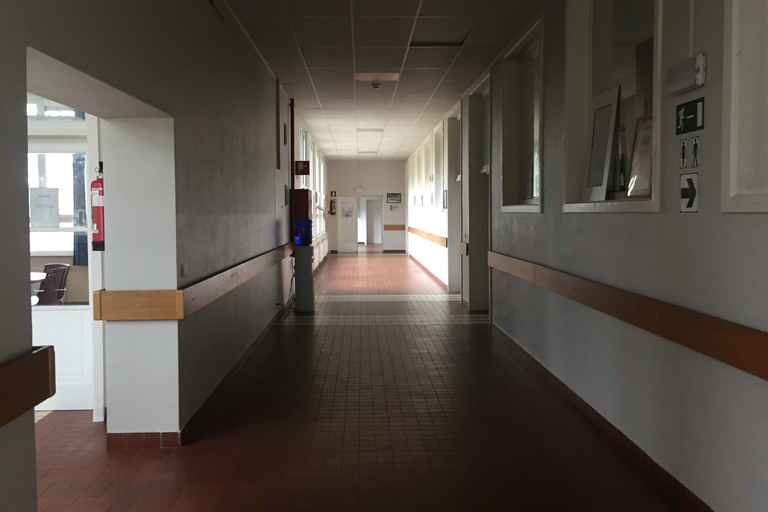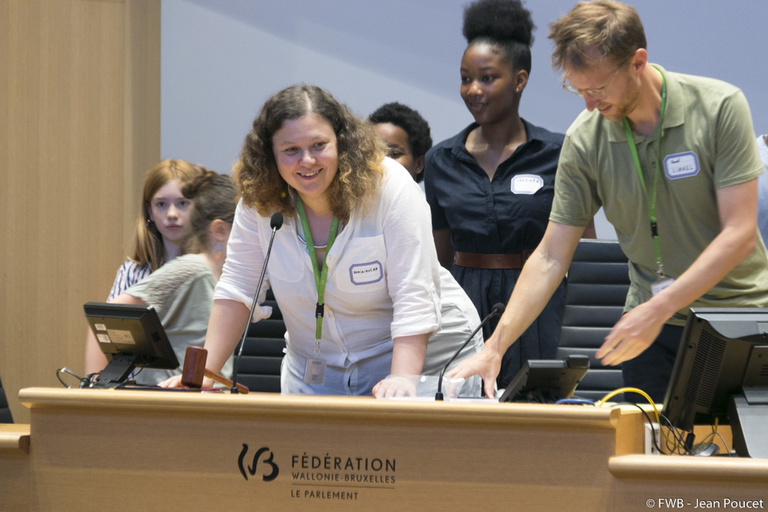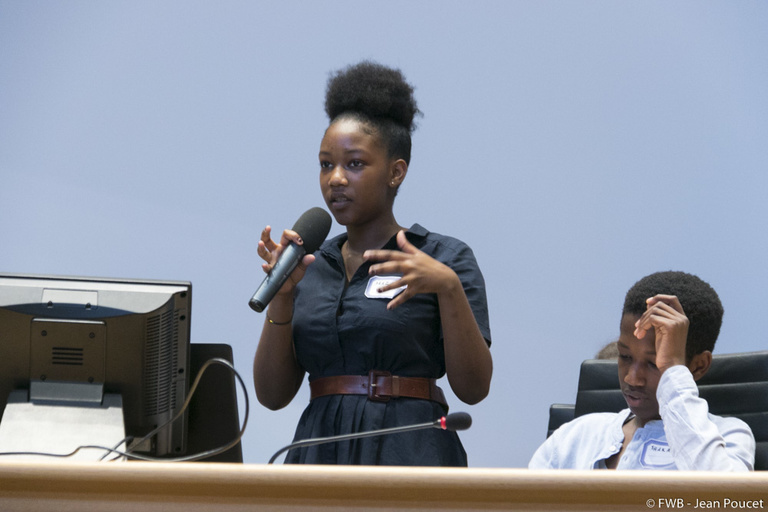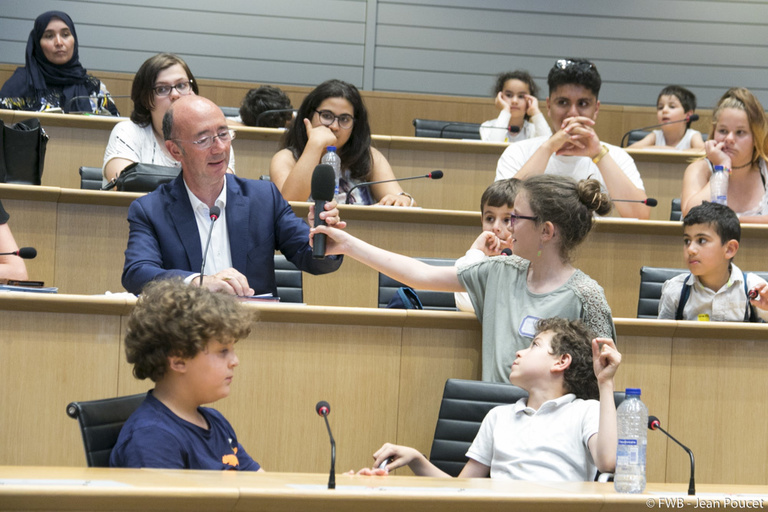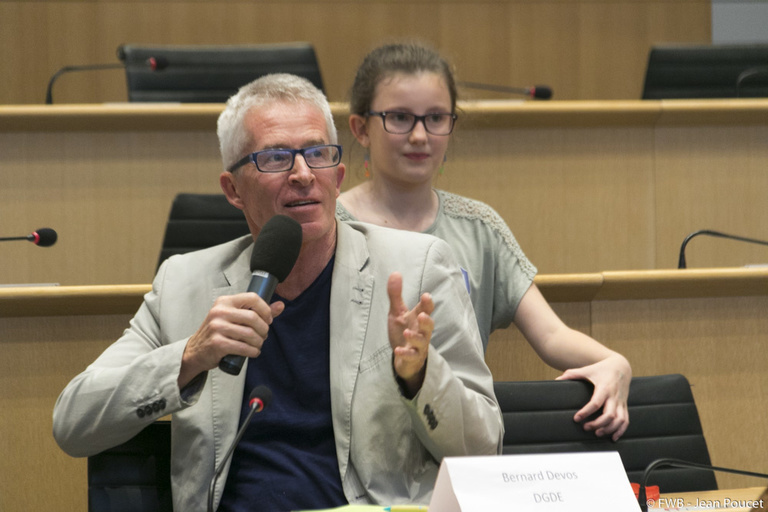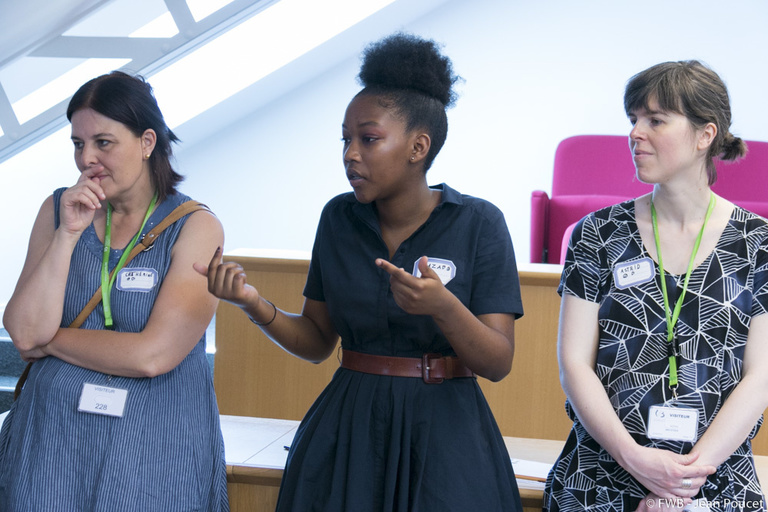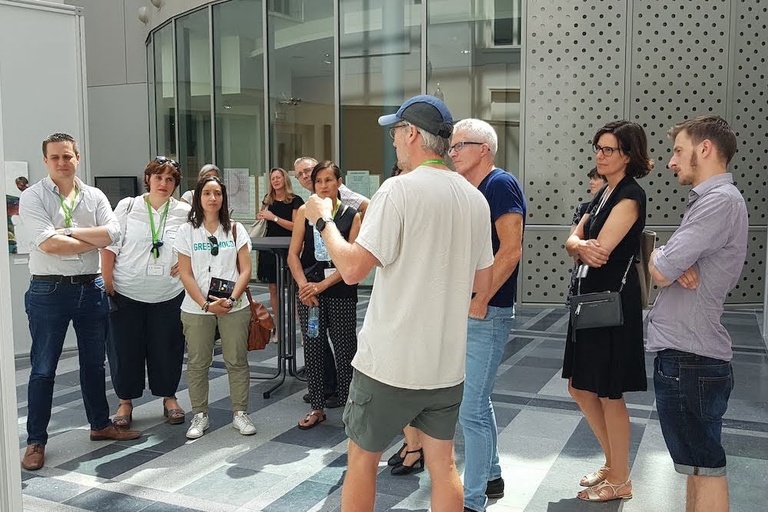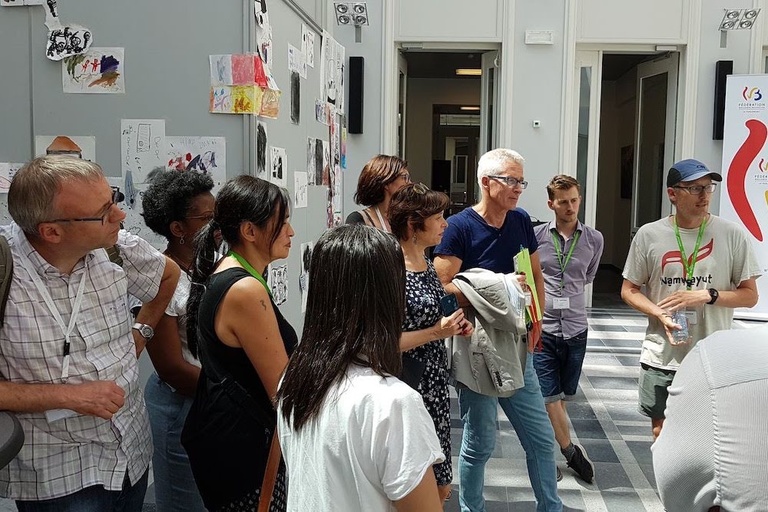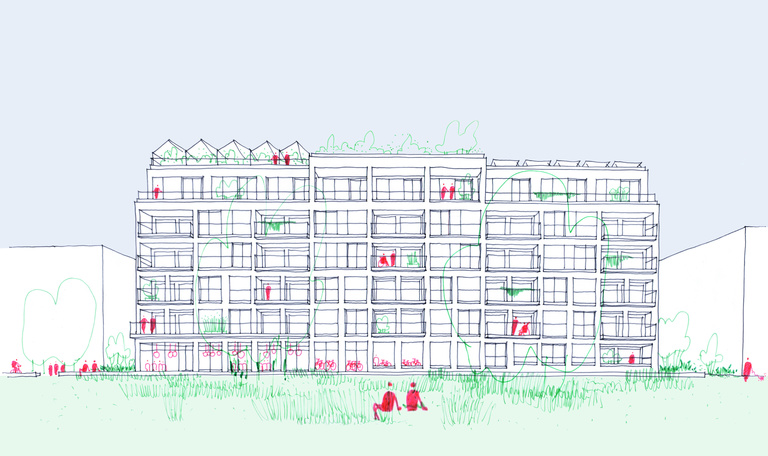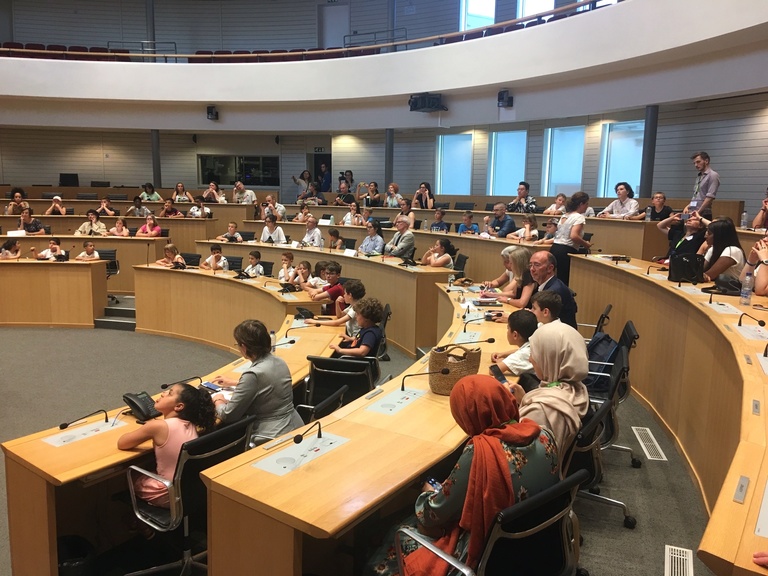
Children's rights
Involving children in preparing policy on their rights
Children
Education
Rights
Co-design
Policy Making
The international Convention on the Rights of the Child is based on four core principles, which include the right to participate and the right to be heard. To apply these principles, and to foster participative culture in government proceedings, the Fédération Wallonie Bruxelles asked Méthos to involve 5- to 18-year-olds in a policy plan on children’s rights (the PADE) for 2020–2024.
We brought together 136 children from various regions and schools in the French-speaking Belgian community for this participatory project. We worked together for six months, talking about their expectations, needs and desires. The project involved a series of workshops, conversations, creating art, a day-long debate at the Fédération Wallonie Bruxelles Parliament, an exhibition and a report, which the children themselves handed to Bénédicte Linard, the Federation’s Vice-President and Minister for Childhood, Health, Culture, Media and Women’s Rights.
“Participating means getting involved, having tasks to do, sharing and assuming responsibilities. In other words, being accepted and included.”
Peter Lauritzen
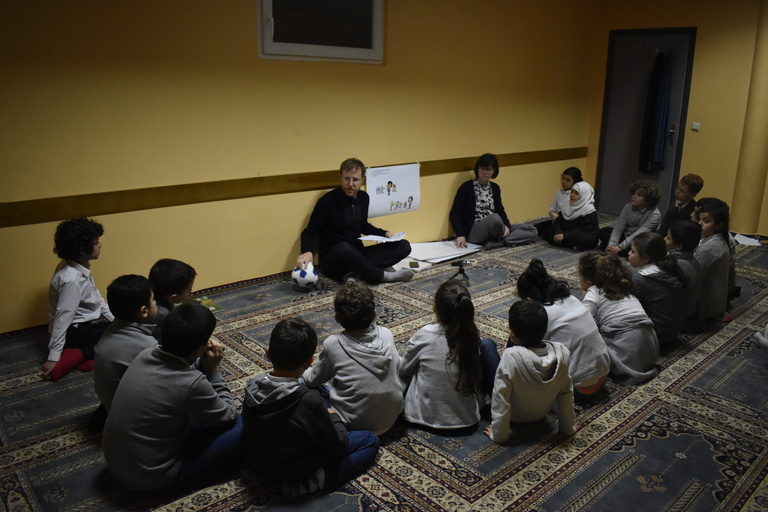
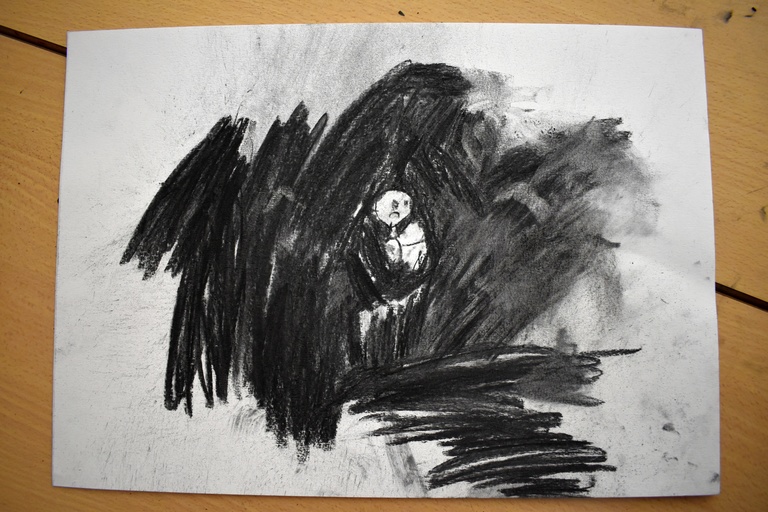
Children at the centre
We designed this entire project as much more than a consultation exercise: we wanted children to be at its centre and partner with the project. Méthos therefore gathered a committee comprising seven children, and coached it. This children's committee supervised the entire project and reported on it to public authorities and the media. It was involved in every aspect, took part in all the meetings with the support committee, and reviewed every decision on the project’s methodology.
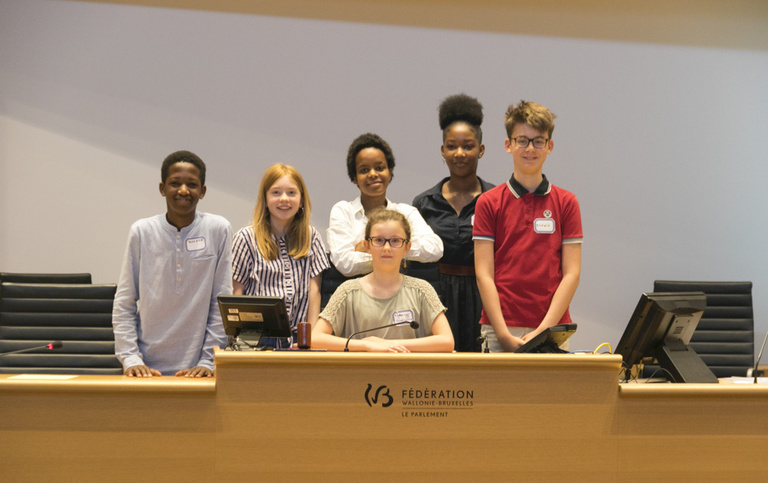
The children committee: Clémence (13 yo), Lola (17 yo), Pénélope (9 yo), Romain (12 yo), Shaka (14 yo) et Shaza (16 yo)
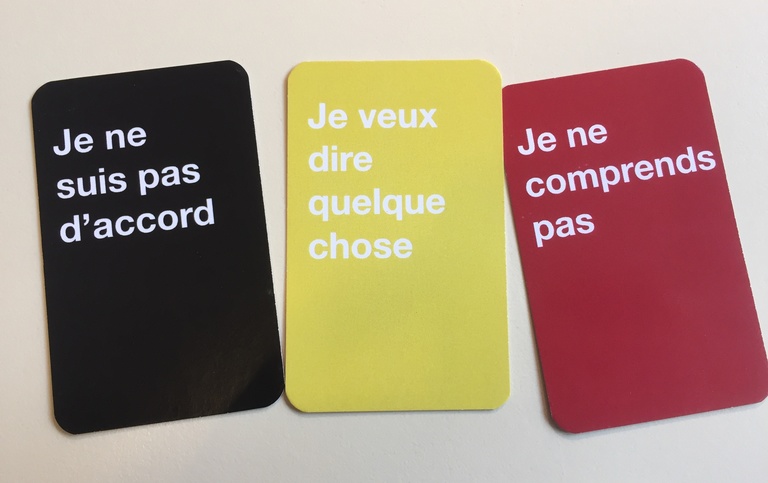
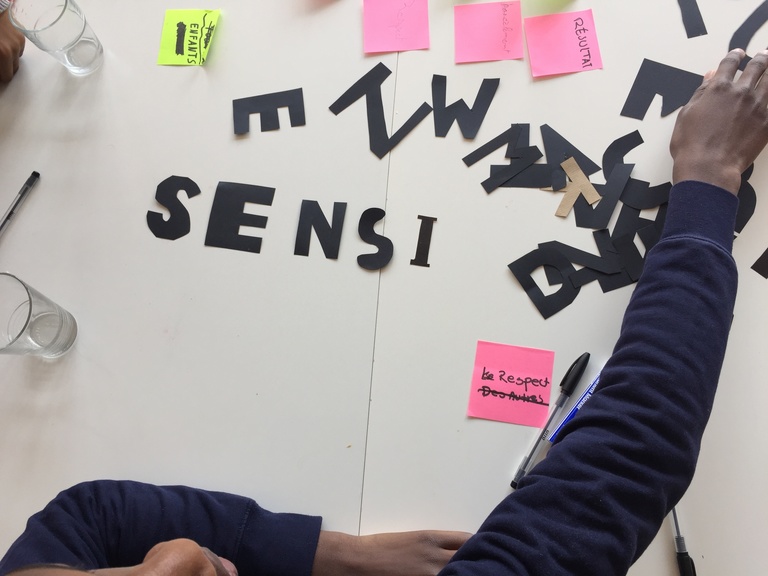
Think labs & Do labs
Children don’t only express themselves with words. And we know that some can feel uncomfortable talking about painful topics and when other children are listening. With this in mind, we organised two types of workshops: Think labs, which involved exercises to prompt children to speak about the things they consider important, and Do labs, which continued the conversation on the same issues but with artistic exercises. The art workshops were led by artists from MUS-E, a Brussels-based arts education organization. Together, they worked with the children painting, sculpting, and producing films and stop-motion animations revolving around children’s rights.
The works were then displayed as an exhibition at the Fédération Wallonie Bruxelles Parliament, which helped to raise policymakers' awareness of the issues.
Dialogue with policymakers
We didn't want this project's outcomes to end up in a report which stays on a shelf: the goal was to give children a voice where decisions are made. So we organised a full day of debates and conversations at the Parliament with the 136 children who had taken part in the project and the leaders of all the parliamentary groups. During that day, the children prepared their recommendations, presented them to MPs and then talked with them about the issues they cared about.
Photos of the day
Download the exhibition booklet (in FR)
"We especially appreciated the Méthos team’s creativity and proactivity, the care they took to make sure the children involved in the consultation felt at ease, and the way they engaged with our requirements.”
Anne-Marie Dieu, head of the Fédération Wallonie Bruxelles’s observatory on children and youth.
A day co-creating and debating in Parliament
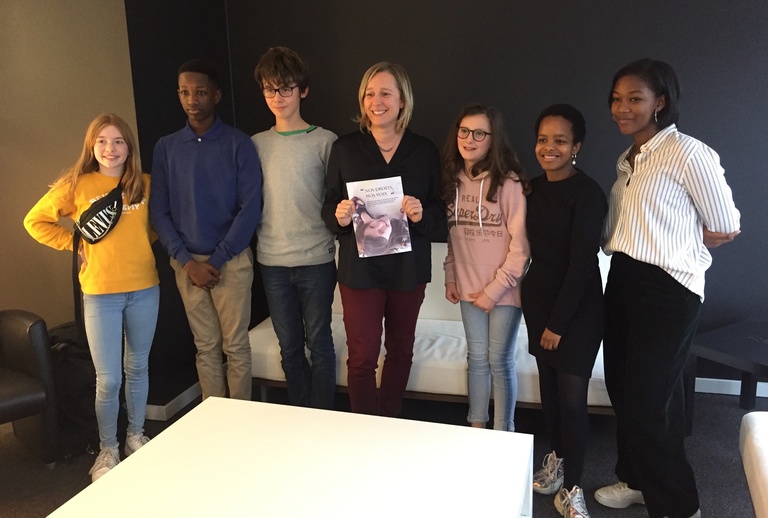
The final report handed to Bénédicte Linard, Federation’s Vice-President and Minister for Childhood, Health, Culture, Media and Women’s Rights.
The video produced by the children’s committee
“It feels good to let go of the emotions we have in our head, and let them out of our body.”
“I had fun doing this activity, thank you for coming!”
“I’m very well, I can’t wait to do this for the rest of the year.”
“I feel good, it’s as if all the problems had just floated away.”
“I don’t know.”
(A child cries)
Read more
• The full report (in FR)
• Details on the process and other resources on children’s rights on the Fédération Wallonie Bruxelles website
A project conducted for the Observatoire National des Droits de l’Enfant de la Fédération Wallonie Bruxelles in collaboration with MUS-E
Zie projecten
Participation in co-housing projects
An overview of best practices and the most effective ways of applying participatory methods to housing projects. What does participatory design involve? Why involve tenants in it? What strategies and tools work best? A study for the King Baudouin Foundation.
With a view to disseminating co-design philosophy, the King Baudouin Foundation asked Méthos to map out best practices and methods to foster participation in designing or renovating buildings.
